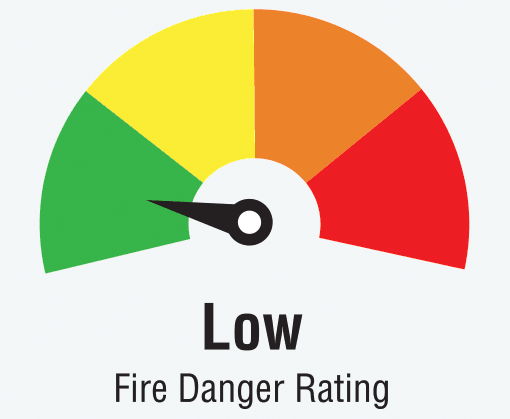
Whistler is Making BIG MOVES for our Climate. When we act together, small steps become BIG MOVES
Whistler’s Climate Action BIG MOVES Strategy identifies the six most impactful action areas we need to focus on as a community to reduce emissions and make Whistler a more climate resilient community. We all have a role to play! The RMOW, in partnership with Whistler’s environmental charity AWARE, has created Small Steps for BIG MOVES: 12 months of climate actions we can each take to support Whistler’s six BIG MOVES!
TAKE ACTION! This August, let’s
Love food, hate waste
Preventing food waste supports BIG MOVE #6: Close the loop and shift toward lower carbon consumption.
With nearly one third of global food produced going uneaten, tackling food waste is critical to building a more sustainable future. This is an urgent, but solvable challenge.
Whistler is lucky to be able to buy food from close to home in the Sea to Sky and throughout BC and there are plenty of tips on offer this month to help you extend the life of your food, from smart storing practices to preserving.

Ready to take action? Let’s try one (or some) of these Small Steps for BIG MOVES:
1. CHECK OUT LOVE FOOD HATE WASTE CANADA FOR FOOD SAVING RECIPES AND TIPS.
Find plenty of tips on meal planning, smart shopping, storing, preserving, and a huge directory of leftover food recipes.
- Get tips here
- Find a leftover food recipe
2. AVOID LETTING FOOD GO TO WASTE BY LEARNING HOW TO STORE, DRY, CAN, FREEZE AND MORE.
- Storing fruits and vegetables apart can help make them last longer. As they ripen, fruits can give off natural gases that cause nearby produce to spoil faster. To learn more, check out the SLRD Fruit and Vegetable Storage Guide
- Dehydrating ripe or overripe produce can be an easy, tasty, and sustainable way to snack: Love Food Hate Waste Canada
- Burned, oversalted, wilted, stale, and overcooked food can often be saved. Check out these tips on how to extend the life of your food.
- Canning food can be a fun and delicious way to preserve food and reduce food waste: Love Food Hate Waste Canada
- Freezing is a great option for storing food in bulk or pre-portioned sizes. Check out these tips for freezing food.
- Dining out? Take a container so you can pack up any leftovers
3. SAVE GHG’S BY BUYING FOOD IN SEASON AND LOCALLY.
Buying food produced close to home means less transportation related emissions and eating in season means prioritising foods that can grow under seasonal conditions rather than needing artificial growing conditions like greenhouses or heavy watering which all add emissions.
Be sure to:
- Check food labels for place of origin. Seek out options that are grown closer to home.
- Buying in season and from sources close to home often mean food is fresher and will last longer in your home
4. SUPPORT SEA-TO-SKY FOOD PRODUCTION BY SHOPPING AT FARMERS MARKETS.
Farmers markets are a great way to connect with local farmers and get fresh, seasonal produce. Supporting farmers’ markets can also minimize your impact on the planet as food is transported shorter distances and is generally grown using sustainable methods.
Check out Sea-to-Sky markets each summer:
- Whistler Farmers’ Market: 11 a.m. to 4 p.m. on Sundays from May to October 10
- Pemberton Farmers’ Market: 3 p.m. to 6:30 p.m. on Fridays from June through October
- Squamish Farmers’ Market: 10 a.m. to 3 p.m. on Saturday from April through October
5. FOR UNAVOIDABLE FOOD WASTE, BE SURE TO COMPOST TO KEEP IT OUT OF THE LANDFILL.
Composting food scraps, yard waste and other organic material like napkins, tea bags, coffee grinds and house plants is important. It reduces the amount of garbage we produce, reduces greenhouse gases and creates compost for local gardens and farms.
You can also compost on the go in at the park. Food scraps, compostable plastics, RMOW dog bags, and other compostable materials can go into the new compost bins in Whistler Parks! AWARE’s Zero Waste Heroes will be stationed at park bins in Rainbow and Lost Lake on weekends in the summer to help answer any recycling or composting questions.
Get more composting tips by checking out:
- Downloadable composting poster
- Guidance on composting in your strata
- Guidance on compost at work
Quick facts:
Food is wasted from farm to plate, through production, processing, distribution, retail, food-service and at home.
This adds up to more than $1,100 of food from our homes each year.
The largest proportion (50 per cent) of all total food wastage occurs at the post-consumer stage, in our homes and businesses.
While composting provides an opportunity to close the loop on food that does go to waste, the primary goal should be to avoid letting food go to waste in the first place.




